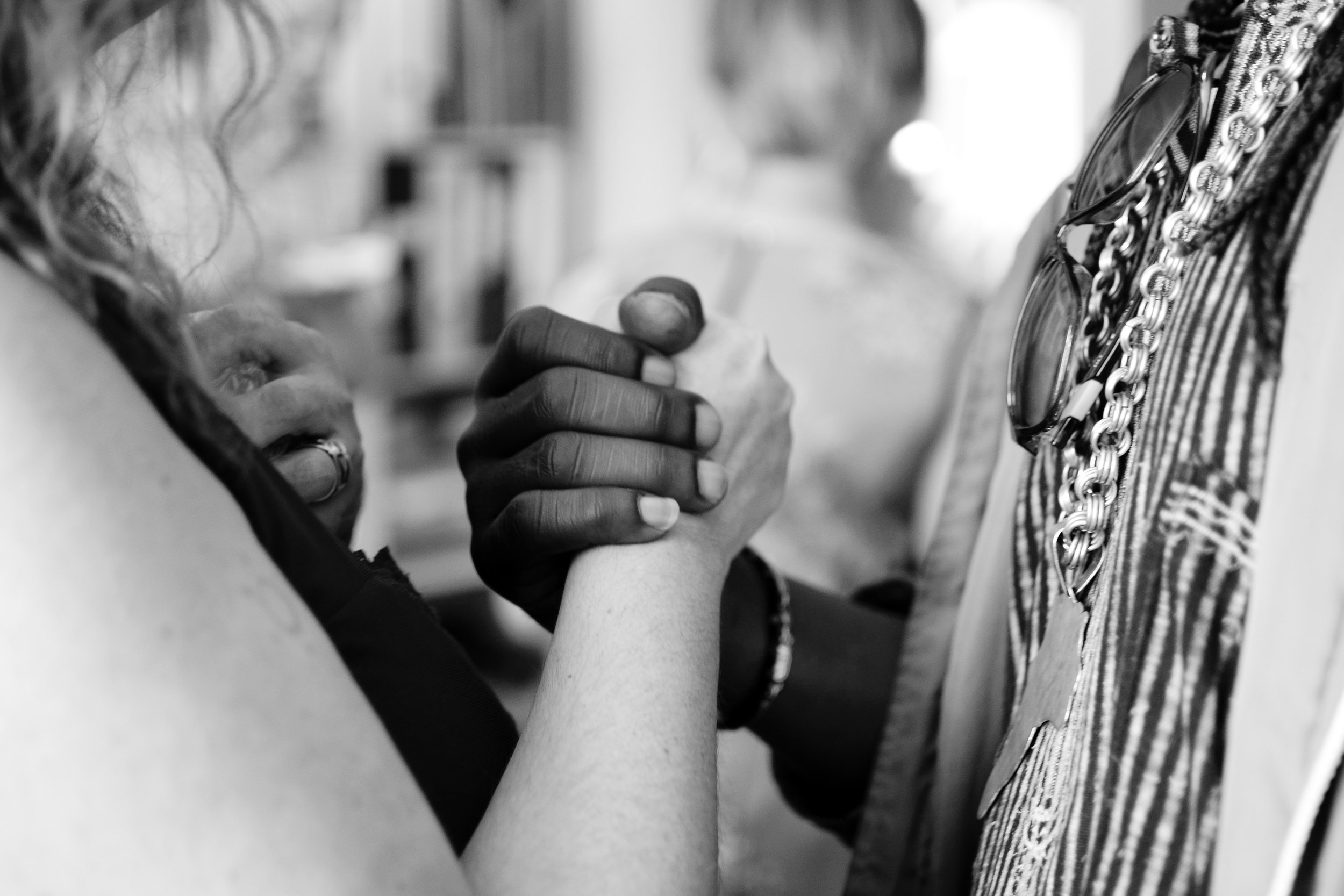
What we do
We’re learning where we can be most helpful.
Our work centres marginalised and racialised communities. We are….
Developing alternative help systems for marginalised and racialised communities
Building capacity and sustainability within communities
Embodying approaches that share power, knowledge and resources
Partisan’s Principles
All our work revolves around our guiding principles: the four 4R’s.
These are our pillars, and have been chosen to help us to pull away from capitalist and colonial systems that recreate inequalities and harms in the world today (in particular for marginalised and racialised communities).
They orient us towards a more equitable and collaborative future.
-
We recognise that the current system doesn’t value the time it takes to build trust and relationships, which is core to change work at an individual, community and systems level.
Relationships move at the speed of trust; sometimes this is a two step dance between process and relationships, depending on what is needed. We take the time to understand ours and others relationship patterns and experiences before doing the hard work of change together. We expect rupture as a normal part of life and invest time in repair.
-
We recognise that the current system has harmed and continues to traumatises marginalised and racialised communities. Repair requires a long term commitment; it is multifaceted.
We are re-defining what healing is with our communities. We are committed to learning more reparative practices and approaches to support the healing that needs to happen in order for people to live their preferred story.
-
We recognise that the current system is extractive and continues to uphold white supremacy, heteropatriarchy and all the dominant practices that oppress.
We recognise that communities hold ideas and strength, and believe in the Ghanaian principles of ‘Sankofa’; going back to acknowledge and learn from what has been done, so as not to make the same mistakes. This builds on ancestral and cultural wisdom, as well as existing strengths in the community to create change that can be sustained, retained and built on.
-
We recognise that power, knowledge and resources are currently held by a few.
We use approaches that actively disrupt this, focusing on participation of those who are most marginalised and racialised. We prioritise redistribution and give collective agency to make changes, not only because this is fairer, but because it makes most sense to centre those most affected by these issues as they have the most insight, ingenuity and value to add.
Why do we need the 4 Rs?
The principles give us drivers
We want to learn through our work about what is needed
They all need to be present for us to do the work, but may be at different frequencies throughout. We ask ourselves why?
We feel that both the individual and combined use of the principles helps us to explicitly create a different way of being between ourselves as a team, and those we work and partner with. We are seeking to learn how to bring these to life with the communities and partners we currently work with and as a way of reaching out to and collaborating with future partners.
Test, Learn and Adapt over time
As we are working with the complex and systemic issues facing communities, we need a way of learning that is dynamic and adaptable. A learning approach that can respond as fast as things change and is a way of life for Partisan, a culture and paradigm shift in itself.
We work with a learning partner and build and learn in context and have structured the organisation around its weekly learning spaces. We draw on a range of tools to help us, developing a culture of collective responsibility and impact. We learn through failure and welcome the growth that it brings.
At Partisan, we believe an approach to change is more active than a theory of change.
It’s the action that we are taking to start to address some of the challenges, problems, and inequalities marginalised and racialised communities experience in current help systems.
Our Approach to Change
Partisan’s Planetary System
We want to…
To develop an understanding of who else
is trying to shift their mindset and unlearn the current colonial system
is moving towards alternatives, when it comes to how society connects, works and heals together.
We imagine these stakeholders may not be mental health professionals, and could be campaigners, justice worker, lawyers, African Centred Psychologists, change makers etc, in a different field but applying similar principles.
We really want to test the boundaries and remit of who we can work and learn from, and with.
If this sounds like you, join our community.
Partisan thinks about the world and our networks through:
places
people and
communities of practice
who are pushing for a future world, where help systems centre repair and healing for marginalised and racialised communities.
Our strategy over the next 3-5 years is to grow our network beyond mental health and the youth sector, asking current and new connections and supporters for help to do this.
“Our approach is exciting because we don’t know where we might be next year, as we haven’t really tested the boundaries enough of what people are doing and what’s been done.” - Jay Perkins, Founder
Who we’ve partnered with
Collaboration is key to our process



















































